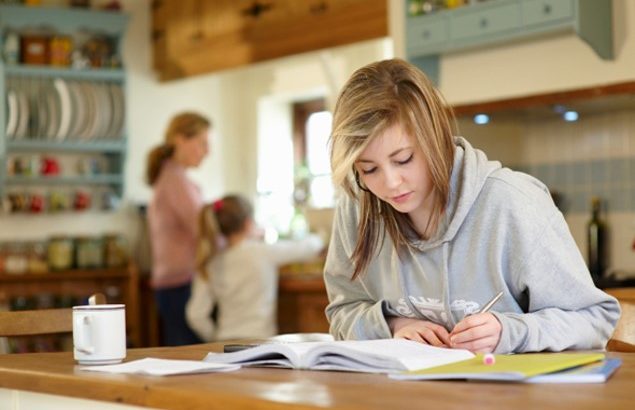Lately, many people have found themselves operating outside of their normal routines, including working from home with their children. While this can be a big adjustment and we are all focused on our physical health during this pandemic, it is important to remember our emotional wellbeing and that of our families. On Friday, March 27, the Human Development Program with Virginia Cooperative Extension hosted a webinar entitled “Positive Experiences with Children at Home”. The meeting provided tips and strategies on how to handle such adjustments. Here are the top 5 takeaways:
 Find the calm. With so much uncertainty, it is easy to be anxious about what will happen next. It is important to be patient with ourselves and each other. Remember that we are all in this together. While we are social distancing, we can still utilize technology to learn the facts and reach out to a support system. This sense of calm does not have to look the same for everyone, but we can each find something that works for our families. Children are keen observers of our behaviors and stress and look to us to be the example.
Find the calm. With so much uncertainty, it is easy to be anxious about what will happen next. It is important to be patient with ourselves and each other. Remember that we are all in this together. While we are social distancing, we can still utilize technology to learn the facts and reach out to a support system. This sense of calm does not have to look the same for everyone, but we can each find something that works for our families. Children are keen observers of our behaviors and stress and look to us to be the example.- Children need reassurance. They need us to reassure them that they are safe. They are curious about what is going on and it is important to share age appropriate information. School-age children will probably ask questions but just want basic answers and not a long, drawn-out conversation. Older teenagers are constantly going to be talking about it with friends and on social media, maybe not directly to you. Some children may also be quieter than usual or exhibit behavioral cues without expressly asking questions. It is imperative to initiate conversations to reassure them they are safe and educate them on the facts.
- Children of all ages thrive with routines. Routines will look different for every family, but a sense of predictability can be comforting and reassuring. This may mean a time-set, learning schedule for children or be as simple as Taco Tuesday every week. Consistency is the key.
- Help your children self-regulate. Stress can become a bigger issue if it is not addressed and tended to. It is critical to make sure physical and emotional needs are met. Children (and adults) should be getting adequate sleep, eating healthy and finding creative outlets for their emotions.
- Take care of yourself. To take care of others, you must also take care of and be gentle with yourself. There isn’t a blueprint of a perfect plan that will fit each and every family or person. Homeschooling or working from home with children is new for so many and we are all learning together. It is going to take time. Be patient with yourself, other adults and children.

The webinar ended with a question and answer segment and a chance for parents to discuss what is working or not working in their homes. To see the full webinar and conversation, please view the recording through the following link: https://virginiatech.zoom.us/rec/share/4uMuEoD_zklIeKftwn77VoIOPYDFaaa81iIc-acJzUvAbaT-PJDbilorMrUnajkx
The following additional upcoming opportunities are available for you to view:
- Sheltering in Place with Young Children -Thursday April 2 11 a.m. – https://virginiatech.zoom.us/j/581763642
- Working and Schooling from Home: Ideas and Resources – Friday April 3 at 10 a.m. –https://virginiatech.zoom.us/my/hmac411
- Marital Relations During Social-Distancing Amid COVID-19 – Wednesday April 8 at 10am – https://virginiatech.zoom.us/j/176814398
- Teens, Stress and Anxiety While Social-Distancing – Friday, April 9 at 10am – link coming
You can also find additional resources for working at home with children here:
- Virginia Cooperative Extension – https://ext.vt.edu/ and https://www.facebook.com/VirginiaCooperativeExtension
- Virginia 4-H – https://www.facebook.com/Virginia4HStateOffice/ posting ideas daily
- School-Age: VA Department of Education: http://www.doe.virginia.gov/support/health_medical/office/covid-19-parent-guide.shtml
- Teens: https://www.health.harvard.edu/blog/how-to-talk-to-teens-about-the-new-coronavirus-2020031419192
- Local libraries, YMCAs, museums, zoos are all hosting and updating offerings.
- Young children: NAEYC https://www.naeyc.org/resources/topics/covid-19
- Petersburg Healthy Start Loving Steps Facebook page is posting DYI activities for families with infants and toddlers: https://www.facebook.com/pages/category/Government-Organization/Petersburg-Healthy-Start-Loving-Steps-138550163159487/
- This link includes links to a huge listing of resources: https://www.today.com/parents/how-homeschool-during-coronavirus-crisis-t176020
